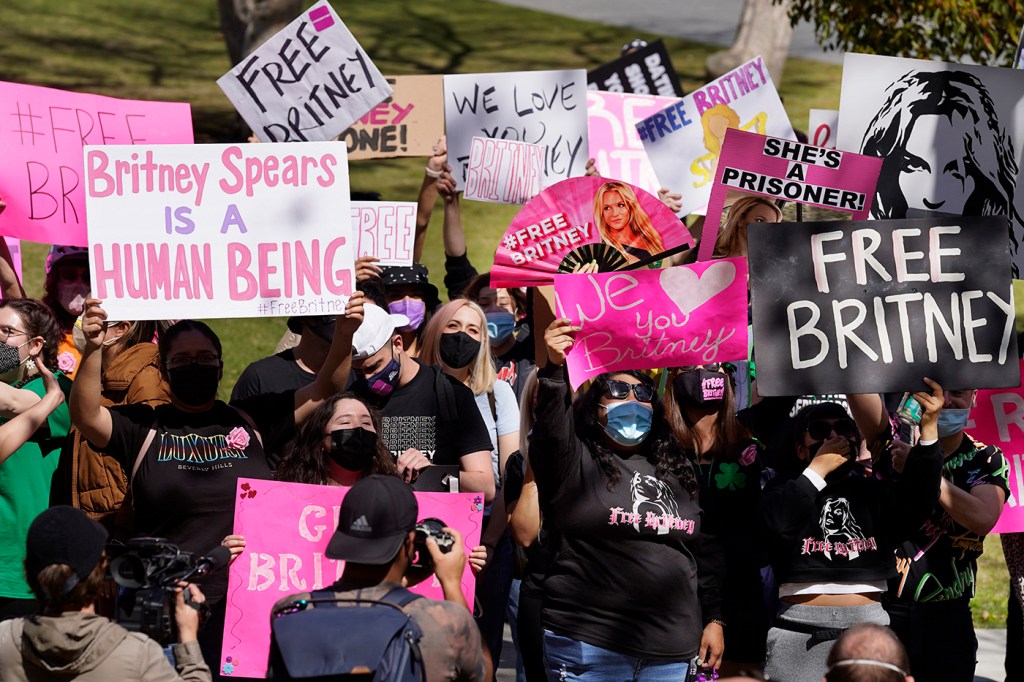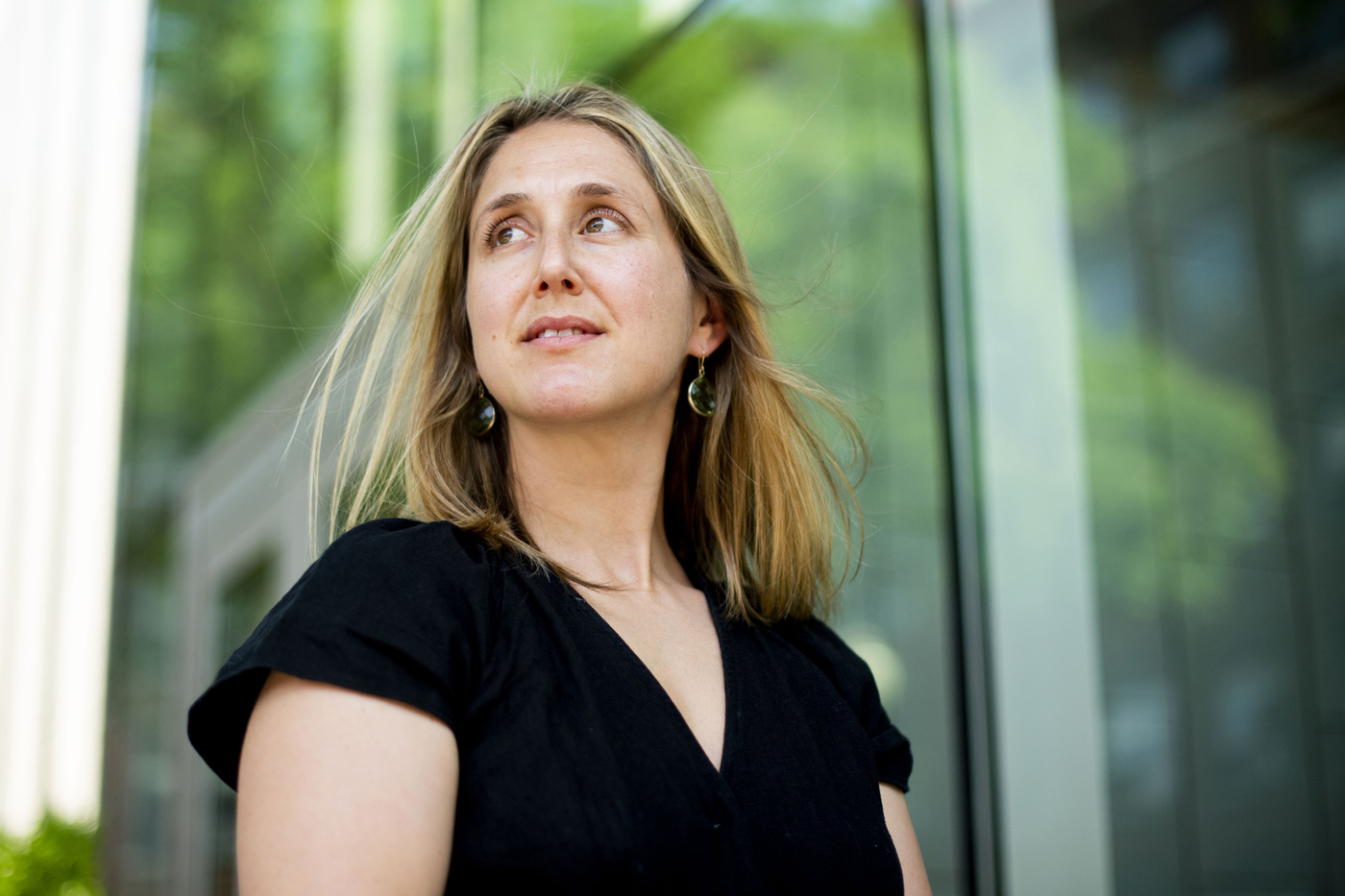Britney’s conservatorship and Britney’s right to choose

For the first time in the decade-plus that Britney Spears has been under a court-approved conservatorship, the musician has spoken out about the experience, describing it as an “abusive” arrangement that has stripped even her ability to decide to have children or marry in the future.
It was a shocking revelation, but one that describes a situation in which many people find themselves—even without conservatorships in place, says Margo Lindauer, associate clinical professor and director of the Domestic Violence Institute at Northeastern.

Margo Lindauer is an associate clinical professor with joint appointments in the Northeastern University School of Law and Bouvé College of Health Sciences. She is also director of the Domestic Violence Institute at the university. Photo by Ruby Wallau/Northeastern University
Spears, 39, has been under a conservatorship of her finances and personal life since 2008. James P. Spears, the singer’s father, was appointed her conservator following a series of public struggles and concerns around her mental health and substance abuse.
Sometimes known as a guardianship, a conservatorship is a complex legal arrangement typically reserved for those who are old, ill, or infirm. A representative is designated to manage the person’s affairs and estate if that person is deemed unable to take care of themselves or susceptible to outside influence or manipulation.
On Wednesday, Spears addressed the Superior Court in Los Angeles by phone to ask for the conservatorship to be terminated. Her testimony was also made available to the public, fanning the flames of the #FreeBritney movement led by a robust group of fans and activists that’s protesting what they view as an unfair arrangement for the singer.
Spears said on Wednesday that her conservators refused to allow her to remove a contraceptive intrauterine device, or IUD, so that she could try to have a third child. Spears already has two children with her ex-husband Kevin Federline.
Lindauer, who also leads Northeastern’s Domestic Violence Clinic, which serves victims in the immediate Boston area, has a unique lens through which she views Spears’s situation.
Let’s start broadly. What do you make of Britney Spears’s testimony?
The thing that stood out to me is just how much power the conservatorship had over her right to choose: whether to be on birth control, whether to have children—so many choices were no longer up to her. Presumably, that was put in place because people determined she was either an unfit mother, would not be a fit mother to future children, or wouldn’t be able to carry a healthy baby.
In the community I serve, we don’t see conservatorships very often, but we do have other agencies, such as the Massachusetts Department of Children and Families, that will come in to monitor people’s behavior.
So that idea of policing bodies happens so much when it comes to marginalized communities. I think it’s terrible, but I think it’s much more common through policing practices than many people may realize.
And it’s not to minimize Britney Spears’s situation, but there are so many ways that we police people’s behaviors and tell society what’s right, that I think it just feels jarring when we tell it to someone who has so much privilege in the form of celebrity, wealth, whiteness, and so on.
The point you raise also reminds me of the abortion debate in the U.S. Do you see any parallels there?
Certainly, when we talk about the right to choose, or being pro-choice, it has to go both ways. If you take that stance, then a woman is allowed to choose not to be pregnant and she’s also allowed to choose to be pregnant.
There is also the question of Spears’s mental health. How does that come into play?
No one is disputing—not even Britney herself—that she experiences mental illness, but lots of people experience mental illness and still have children. What sticks with me from [the New York Times documentary “Framing Britney Spears”] is how pernicious the scrutiny was and is of her: her body, her behavior, her intelligence. It certainly seems that her situation in life exacerbated her mental illness.
And what is really striking is how the men in her life, who have acted terribly, became the heroes. I think what we see here is a bigger statement about how we, as a society, judge men and women very differently.
Spears described her conservatorship as “abusive.” Based on your scholarship and background in helping victims of domestic abuse, do you agree?
When we think about domestic violence, it’s really all about power and control. Physical violence is one way that dynamic shows itself, sexual violence is another. But this imbalance of power can also manifest as financial control; emotional abuse; minimizing, denying, or blaming the victim for their circumstance; or using children as pawns in arguments.
To me, Britney has experienced most of these things. There’s been an imbalance of power and control, which is the objective of a conservatorship—to take over the decision-making control for someone. So, I think we need to reconsider and reimagine these relationships and dynamics.
For media inquiries, please contact Marirose Sartoretto at m.sartoretto@northeastern.edu or 617-373-5718.





